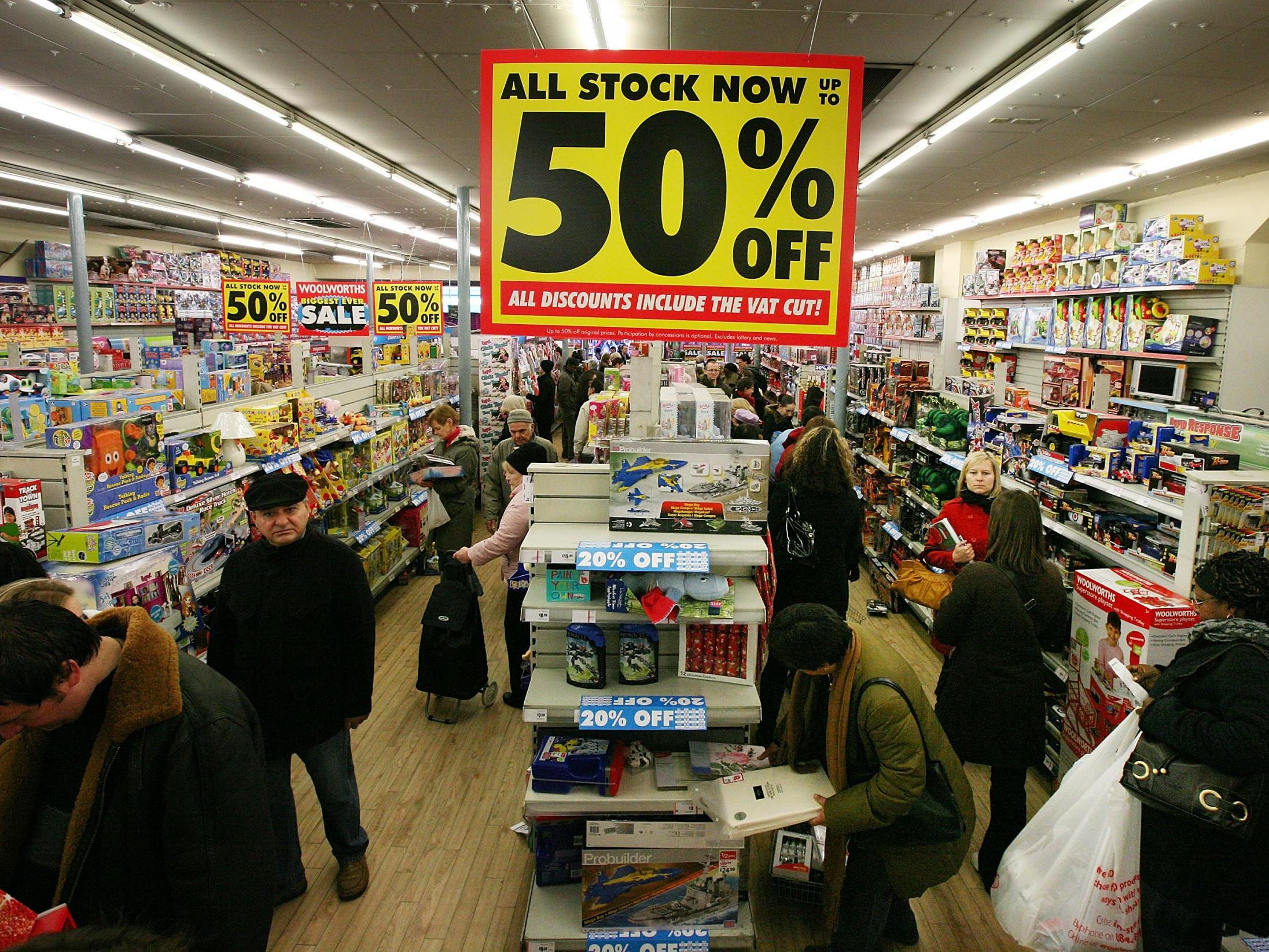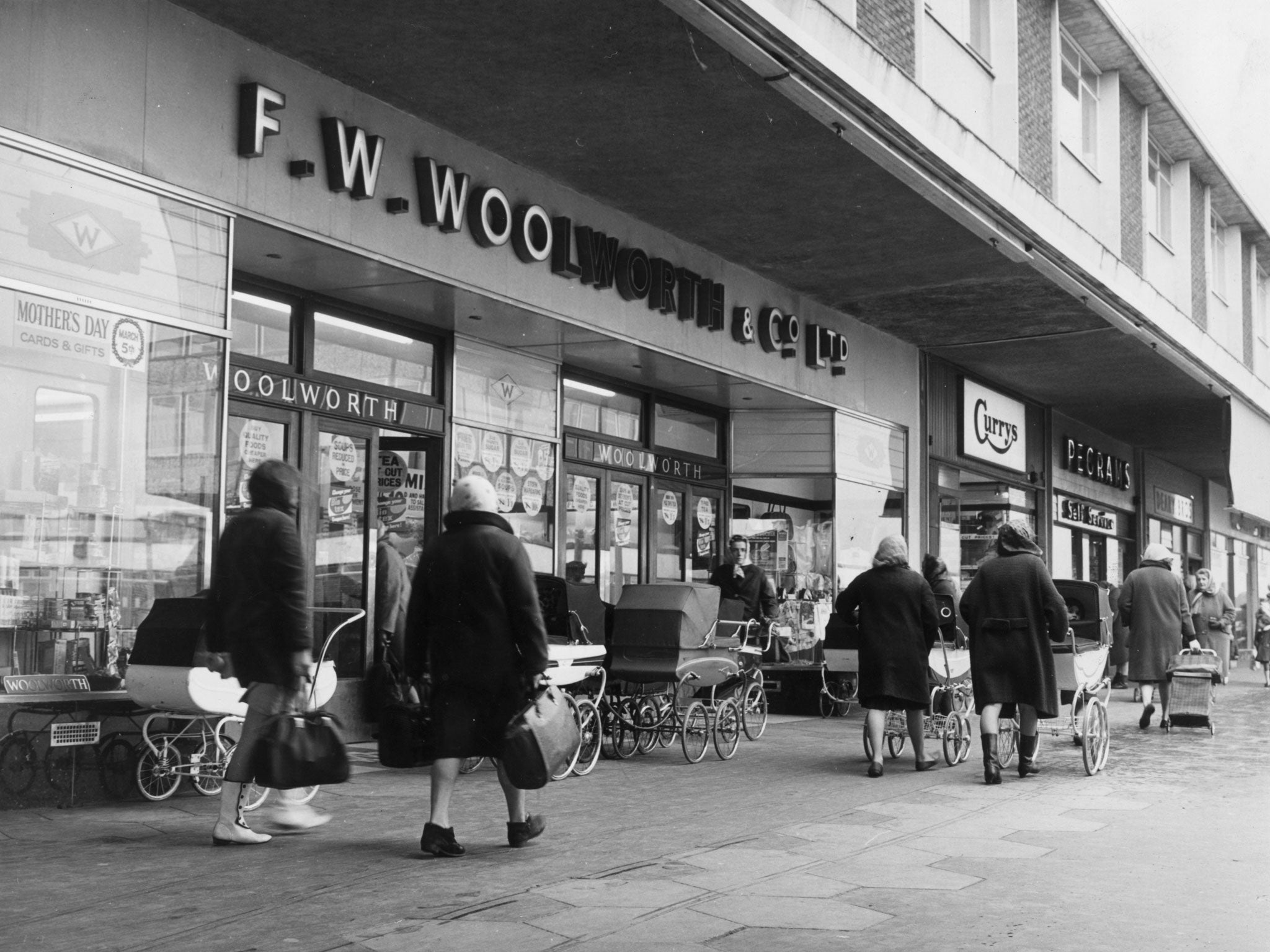Woolworths: In memory of one of the weirdest shops on the British high street
Where else could you go when you needed a bag of pick 'n' mix or a Papa Roach album?
Your support helps us to tell the story
From reproductive rights to climate change to Big Tech, The Independent is on the ground when the story is developing. Whether it's investigating the financials of Elon Musk's pro-Trump PAC or producing our latest documentary, 'The A Word', which shines a light on the American women fighting for reproductive rights, we know how important it is to parse out the facts from the messaging.
At such a critical moment in US history, we need reporters on the ground. Your donation allows us to keep sending journalists to speak to both sides of the story.
The Independent is trusted by Americans across the entire political spectrum. And unlike many other quality news outlets, we choose not to lock Americans out of our reporting and analysis with paywalls. We believe quality journalism should be available to everyone, paid for by those who can afford it.
Your support makes all the difference.The last branches of Woolworths closed a decade ago today.
As the shutters clanged down on the chain’s final 199 shopfronts in market towns across the British Isles on 6 January 2009, a little piece of UK high street history passed away. No longer would we have access to a one-stop shop answering to all of our most disparate needs.
Where else could you go when you needed a bag of pick ‘n’ mix, a comprehensive selection of children’s clothes and a copy of Papa Roach’s album Infest on CD at short notice?
WHSmith may have you covered for greetings cards and Dean Koontz novels but it's all too rational. You might be able to wander into Aldi in search of a six-pack of Alpine lager and that nice sugary peanut butter and end up stumbling out with a welding mask and a pair of skis but even that has a value-driven internal logic.
Poundland is perhaps the true inheritor of the Woolworths model but rarely attempts the same scale of mad ambition.

Woolworths’ aisles were lined with affordable impulse items that had no business together – school stationary alongside bottles of perfume and fishing tackle. If you were a bored teenager in the late 20th century, there was always Woolworths to loiter in.
An American import, Woolworths first arrived in the UK in Edwardian Liverpool. The inaugural “penny and sixpence store” opened its doors on 5 November 1909 with a ceremony featuring a live orchestra, circus performers and fireworks.
Pennsylvanian entrepreneur Frank Winfield Woolworth soon had 40 British branches up and running, proving his doubters within the US head office wrong. They initially feared venturing across the Atlantic might lead them into a commercial “bear’s den”.
By 1930, the 400th branch of Woolworth was opened in Southport, Lancashire. By the time the brand’s popularity peaked in the 1960s, the company had 1,141 branches around the country.

Woolworths began to run into trouble in the 1980s and responded by pulling out of the Irish market and abandoning its out-of-town hypermarket format stores as a failure. It also vacated its big city centre department store premises like Briggate in Leeds in favour of open single-storey shops.
At the turn of the millennium, the company tried various means to stay afloat, attempting to rival Argos with a “Big Red Book” ordering scheme and hiring oddly matched celebrities like Jackie Chan and Kelly Osbourne for their advertising campaigns.
By late 2008, administrators Deloitte had been called in and all remaining 807 stores were gradually closed, resulting in 27,000 job losses. Investor Theo Paphitis was among those interested in saving the day before abandoning the project as a lost cause.
The last of the company's stock was being sold off at bargain prices.
Asked about the closure, Brixton shopper Lucy Ferguson hit the nail on the head when she said: “The problem was, you never really knew what Woolworths sold.”

Join our commenting forum
Join thought-provoking conversations, follow other Independent readers and see their replies
Comments